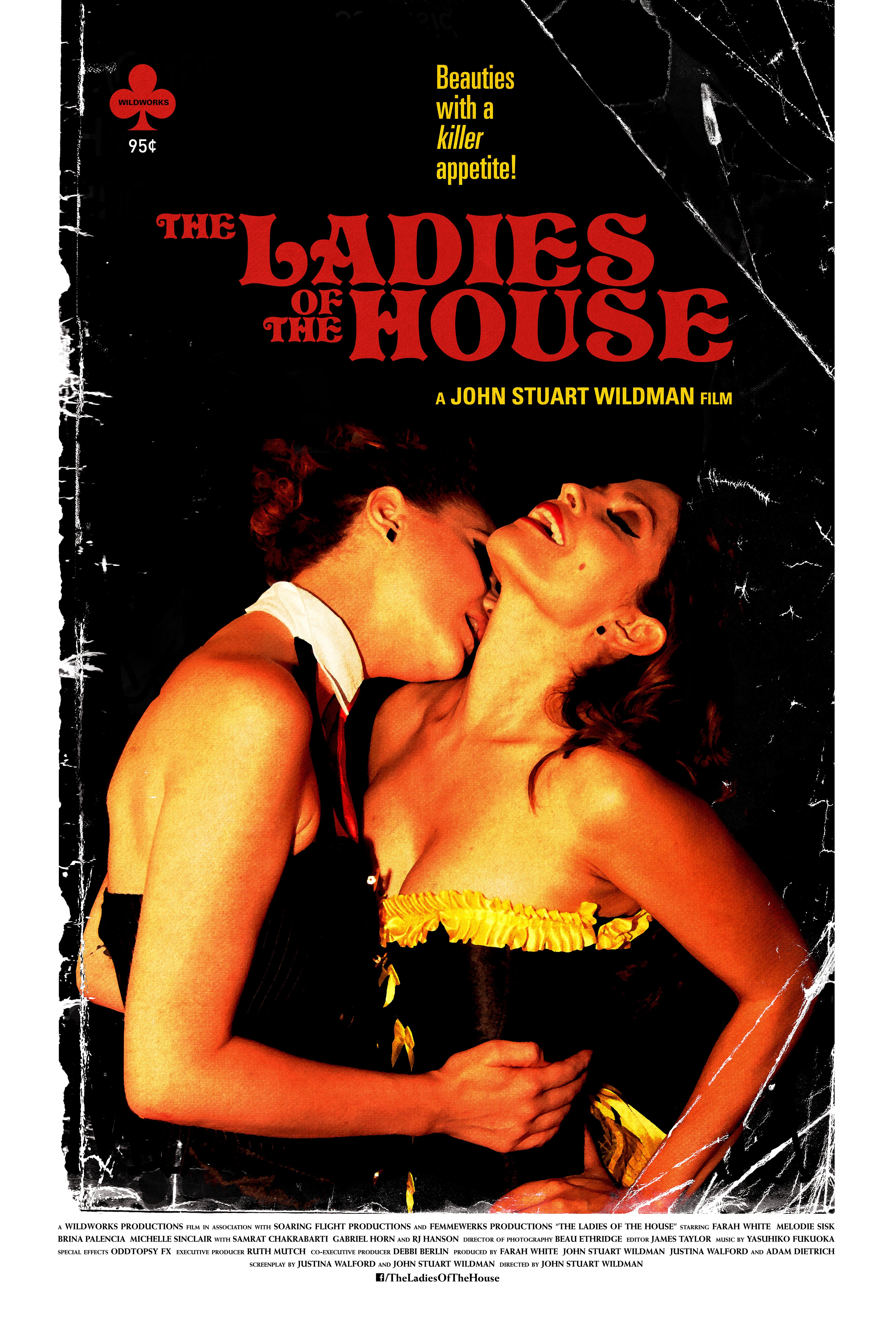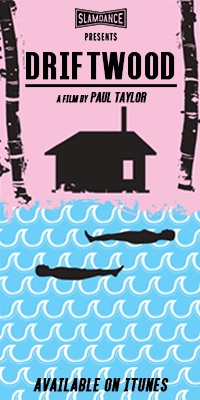Perhaps the best breakout comedy movie from the 2017 Tribeca Film Festival is a Capra-esque gem called Nobody’s Watching. It’s a smartly-executed work which captures powerful and authentic emotions, whose laughs are not throwaway and cheap, but based in real sadness and approached with great reverence (read the full review: http://festworks.com/2017/04/17/tribeca-2017-reviews-julia-solomonoffs-nobodys-watching-sidesteps-escapist-gags-or-oscar-hounding-histrionics-delivering-subtle-realism-patiently-uncomfortable-scenes-and-a-whole-lot-of-empath/). The main character, Nico, is an Argentine actor trying to make it in the big time of New York’s filmmaking scene – and failing miserably at it. He lies all the time to friends and family back home that he’s doing great, getting himself into deeper and deeper trouble as the story progresses. I caught up with the film’s writer and director, Julia Solomonoff to dig deeper into her thoughts on the film’s origins, intentions and realization.
- MC: One of the really great things about your film is that it takes the often used “comedy of errors” formula and turns it inside out. Often in film and TV, characters hiding the truth leads to cheap laughs and easy endings where everything works out. In Nobody’s Watching, the laughs are costly and the conclusions are far more ambiguous. How did you strike the balance between chuckling at Nico’s escapades and crying for his failures?
JS: I think comedy comes from pain. And there’s pain and hurt in this movie. It comes from an honest place of not taking yourself too seriously – a place [where] you allow yourself some mistakes, and also finding humanity in your own failures. So, that is what I think is kind of warm about the film. I feel [Nico] is a character who tries and fails and I like him more for his trying than for his success, you know?
2. MC: The underlining pain of failure is something that everyone can relate to, but when it happens to artists whose dreams are dying, there’s an element that most people can’t understand. What were you seeking in Guillermo Pfening’s performance to get him to so perfectly express this very particular sorrow?
JS: I knew Guillermo in person, because he helped me in my previous film (The Last Summer of La Boyita) – which is a film I did with mostly non-actors, or natural actors. He was a great help because he’s an actor who could pass as one of the people in the countryside of Argentina – Entre Rios – there’s an important German community there. So it’s like blonde gauchos, you know? So he knows how to ride a horse, he knows how to talk to people who are less urban, and he has a very warm way. For me, working with him, I could see he had a good way to connect with people. Then I started thinking of this story and his English was not at all good. Many producers were like, “Are you sure you want to cast him in this role?” And I basically rewrote the script so that it would sound true to his There were probably more elaborate phrases [the character could have used] that sounded smarter. But I felt that we should embrace the obstacle. We should embrace his accent and his difficulty to go along.
MC: When that becomes a handicap for him – and it does in many points in the film – that’s for real?
JS: It’s absolutely for real! Accent is something you cannot fake, really. It comes through. Even the best actors find very, very hard to control. And in fact, I don’t think you have to control it. I’ve seen a lot of good actors crippled by language. Language is a very hard thing. It’s an intimate thing. In this case, we felt – I could see his face get kind of stiff or rigid when he’s trying to communicate in English. And he’s softer in Spanish. And I think that’s great! I shouldn’t be hiding that or denying that, We say, yes, we have different personalities in different languages. An actor has face, language and body: those are the three elements they have along with emotion. And emotions are also related to language. They’re not just something in the air. Certain words spark emotion, spark feelings.
MC: But like you said – it’s painful to watch him not be able to communicate. So now you have this multi-level expression in the acting. It’s a very smart move, and a very bold move, to rewrite your script to get around that. Sounds like one of those happy accidents [in filmmaking].
JS: It was a happy accident. A lot of people said, “Oh in post-production, you could use another voice.” But I could never buy it. I just had to be honest. It wasn’t going to work and we had to make it work.
3. MC: There’s a funny juxtaposition between how Nico has to constantly hustle in a frenzy to make things happen, and yet how this most quiet and least energetic moments are when he accomplishes the most. On the one hand, for example, he goes out of his way for an abusive lover to take advantage of him, and on the other, he takes back this power in a later scene by sitting perfectly still. Was this contrast something you inserted into the film purposefully?
JS: I wish I was that smart! [laughs]
MC: Another happy accident!
JS: Well, it’s just observation, I think. I didn’t think of it in those terms. But what happens is that [Nico] is somebody that is running on empty. He’s trying so hard to accommodate other people’s vision of him, trying to impress people. He’s doing so much [to get other people’s attention]. But the moment he starts being himself, [making the least effort], he starts to win in a very strange way. [It’s when] he’s not looking for success anymore. It’s like martial arts. He becomes more focused by the end and he’s more effective.
4. MC: Back to the idea of the sense of loss the unrequited artist feels. There are moments in the film that seem too well staged and executed to not have come from direct experience. Can you talk about how your history or maybe that of fellow artists you know influenced the film?
JS: This is a very personal film, I’m not gonna hide that. This film is made out of a lot of personal experiences, personal loss, observations of my life and the people around me. And I would say making [the character of Nico] a guy was the only safe move I could take so that it wasn’t about me! [laughs]
MC: But it’s interesting you made him a gay guy.
JS: To be honest, he’s a guy with a feminine sensibility, but also with a very masculine physicality. He has a very good ambiguity about him.
MC: I didn’t even know he was gay at first.
JS: For me, that was important because I didn’t want to present him [in those terms]. The whole film’s choice is to kind of fool you. Like – he’s blonde, so he’s an American. Oh, no – he’s Latino! He’s at a party – but no, he’s really the waiter. This is his kid – no, he’s the nanny. The film tries to fool you a bit to say, “OK, it’s not exactly what you see here. What you see is not what you get.”
MC: What comes with that naturally is a fluidity in the roles he plays as a character. It sounds like that’s part of the act of discovery – whether he knows it consciously or not – that he’s undergoing.
JS: Exactly. I feel for him. There’s really a lot of observation but more than anything, a sense of discovery. What we felt with Guillermo, when we were working together, is that we did not want to present him in the first scene too long. We wanted him to be a character that you kind of kept finding layers to. That was in the script, but also [evolved during] the filming.
5. MC: Another dimension in Nico’s alienation is expressed in class terms. His old friend Andrea loves him dearly and helps as much as she can, but having married into wealth seems to have made her less empathetic to him. And when he betrays her trust, her reaction seems to be overly harsh, even while it’s understandable. How do class roles play into Nico’s dilemma?
JS: Well, it’s interesting because people in America don’t talk about class. Which for me is a little surprising because I feel like it’s not something you can really deny or escape in a capitalist society. I mean, things cost money! And it’s interesting because I also know a lot of people who come from middle class Latin America that come [to the US] and all of a sudden realize, “Oh! We’re lower class here! We don’t have access to the things we had access to at home. There’s no maids for us, things are expensive. We have to work as bartenders.” And there’s a little clash of the ego that I think is super-healthy saying, “Yes, of course you have to work hard!” But also, there’s the understanding that everybody who comes here comes from [a sense of] belonging somewhere [else]. And here it’s like – start from zero. You don’t belong, you need to make it. It doesn’t matter if “over there” you went to the best school, or if you had a maid make your bed – now you’re going to have to do it. I feel like in that way, it’s a good lesson in [cultural change]. I also feel that [in the US], there’s a bit of denying of the class thing, [even though] it’s underlying. You may say it doesn’t matter, but there are those differences. In this particular friendship, [Nico] goes from a friendly relationship to an employee/employer relationship and the line is very fine. Because it’s fine, it’s harder. It’s a lot easier to have an argument with a boss than with a friend, you know?
MC: And when her husband works his way [into Nico’s friendship] it gets even more difficult. He doesn’t want Nico in his wife’s life.
JS: This is the creative friend that’s maybe fun for the kid [that he babysits for his old friend] but the moment it brings problems – he’s out. A little touch that I love is that when he sees the baby again, the baby has a French au pair, a beautiful French au pair. So we know who won!
6. MC: There are moments in the film where Pfening’s performance telegraphs an overload of visual information in surprisingly understated ways. I’m thinking of scenes like when he’s rehearsing what he’s going to say in his big producer’s meeting, or those times when he’s crushed by people offering him jobs he really doesn’t want. These could easily have been overplayed and lost all of their power. Where other works would have turned to melodrama, yours maintains the tension without the release. How did you and your actor strike this delicate tightrope act?
JS: We trust our guts. When I see that it goes a little too much, we come down. We do several takes and we try. And that’s not a job only for the director and the actor. It’s also the role of an editor. I had a very good editor and that helps a lot. [They can say] “OK, that’s clear.” Sometimes the emphasis isn’t in performance, it’s in a master scene where the character is looking at [something and we can] understand his reaction. You’re giving the information bit by bit. Sometimes it’s not all in the actor’s face. But I do agree – Guillermo was very good at keeping it organic and simple. [He] trusted that in each scene, he knew what people were feeling, so we didn’t need to over-explain it or overexpose.
MC: You had the ability to do a lot of takes and do a lot of coverage then?
JS: Yes. [We used a] variety of angles. I don’t like shooting myself in the foot. There’s great filmmakers that shoot one long take. I don’t have that sense of confidence and I like to have freedom and choices in [the editing process].
MC: Do you storyboard your shots?
JS: We did a bit. I’m terrible at drawing. We would go with our iPhones and take pictures of the camera setups so we articulate the scene with just the crew at the location. Then we rehearse it and see if it works. This gives us a sense of how we’re going to tell the story.
MC: Rehearsal before production or on set?
JS: This is something I learned from [director] Walter Salles. I was his AD and learned a lot about grabbing “happy accidents” – incorporating the unexpected. He was great at that in The Motorcycle Diaries. Yes, I did some rehearsals with the actors [in advance]. On shooting days, I always start with rehearsals – no wardrobe, no props, nothing. It’s not for performance, it’s for blocking. It’s understanding where the camera will go, and how we’re gonna move, keeping it very minimum.
7. MC: The film employs a lot of use of quietness. An event happens, it passes, and there’s this visual reflection which occurs where many other films simply cut to the next scene. You made choices to be patient and let the experience infuse the audience. Were you concerned that such sequences would harm the film’s comedy or pacing?
JS: Yes, I was. But that’s why editors are so important. When we were shooting this, there was a lot of footage and I was very concerned that I was going to end up with a three-hour film [laughs]. And I knew the pace was important. It was filmed in New York. We moved fast. I don’t like to be pretentious. I like things to have gravitas, I like things to matter. But I do not like to overdo it. Makes me kind of…
MC: Anxious?
JS: No, it makes me feel kind of ashamed! If I overdo it, it’s not a good feeling for me. There’s a lightness I want to keep. Even when I’m working through emotions, I don’t want to make it seem [that way]. To be honest, I was also thinking: this is the story of an immigrant. But he’s a privileged He’s here because he wants to [be here]. He’s not escaping a war, he’s not a refugee, he’s not coming from poverty, he’s not coming from violence. So there’s moments when you say [to the character] “Grow up!” If I take it into huge drama, what’s left for the people who have been separated because of deportations? What’s left for the refugees? It’s like, have a little respect, you know? This guy needs to figure out his own thing, but he has a place to go back to. And he better realize what he has. It’s a little bit of the mother in me saying “Toughen up!”
8. MC: The one thing I feel we never get to know about Nico is just how good of an actor he really is. He is approached over and over by people who believe he would excel at teaching or being a permanent nanny. In fact, he seems to be really good at a lot of things. But is he a good actor? Is his problem more that he’s unlucky or is it that he has stronger talents in other areas beside acting? Is he fooling himself or just one lucky break from stardom?
JS: That’s a great question and I asked myself that question. The film had many possible endings. One of them was him doing a monologue in a theater. But then I thought, this should not be about how good an actor the character is. I know Guillermo is a good actor! [Nico’s] failure of success is not about how good of an actor he is. For me, it’s about an actor waiting for approval instead of actually acting. [Another] one of the endings of this film was: he starts to act. He starts being present in the moment and starts acting. So [the original question] is not what the film about. I know he’s a good actor because he can pass as a nanny. He’s really performing constantly. He can be stealing from you and you will be smiling at him. He’s a good actor because he can inhabit different roles and make them full and real.













READER COMMENTS